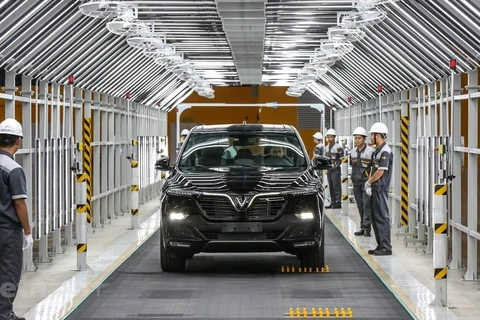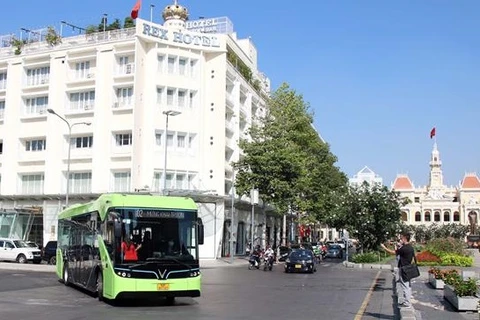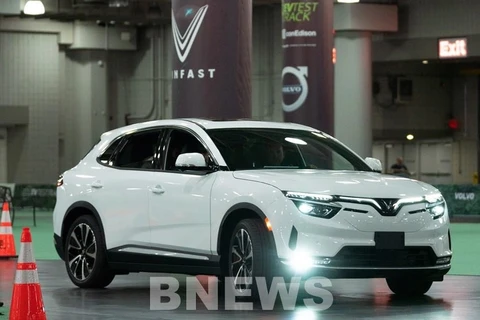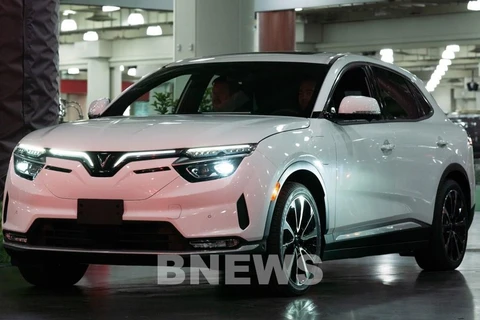 A charging station of Vinfast. Vietnam will study policies for electric car development in line with the global trend. (Photo: vov.vn)
A charging station of Vinfast. Vietnam will study policies for electric car development in line with the global trend. (Photo: vov.vn) The request was to response to the proposal of the Vietnam Automobile Manufacturers’ Association (VAMA).
VAMA said that Vietnam needed to have an automobile industry strategy in line with the growing global trend toward electric cars that contributes to Vietnam’s commitment to net-zero carbon emission at the United Nations Climate Change Conference (COP26).
Accordingly, VAMA proposed an electric car development programme to be raised together with a roadmap to convert from fossil-fuel cars to electric cars and an action plan to implement COP26 commitments.
VAMA also proposed policies to be raised for promoting the development of the part-supply sector for the automobile industry.
Statistics of the Industry Department under the Ministry of Industry and Trade showed that there were about 40 companies operating in manufacturing and assembling automobiles as of the end of 2020 with a total designed capacity of 755,000 units per year.
Of them, foreign-invested firms accounted for 35 percent.
Some domestic firms managed to participate in the global automobile production chain, the department said. However, Vietnam’s auto industry was largely dependent on the production assignment of big manufacturers.
Electric car prices remain higher than in other countries in the region.
Except for VinFast, no domestic manufacturers had seriously invested in developing electric cars, to date.
VinFast previously said that it would stop producing fuel cars by the end of 2022 and increase the development of electric cars in the domestic market, the US and the European markets.
According to Pham Tuan Anh, deputy director of the Industry Department, electric cars were not very popular in Vietnam.
Statistics showed that there were around 600 hybrid, plug-in hybrid and electric cars in Vietnam as of the end of the first quarter of 2021 - all were imported.
The development of electric cars would depend on three major pillars, including the legal framework, support policies from the Government and promotion measures./.
VNA
























